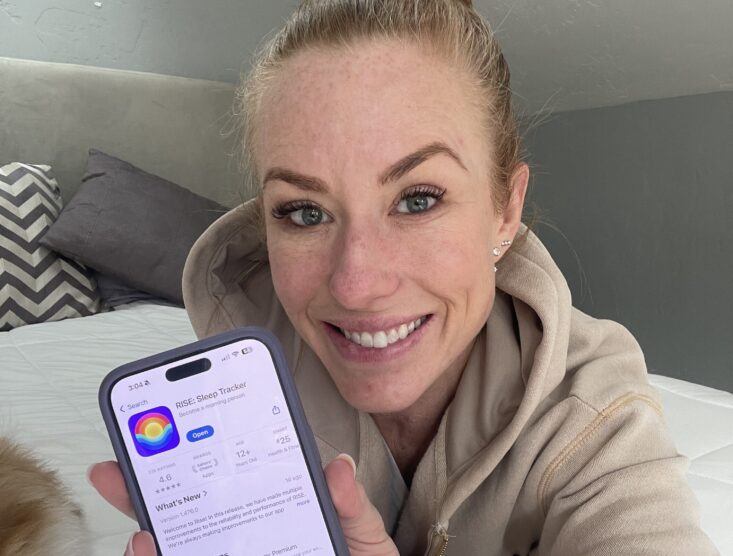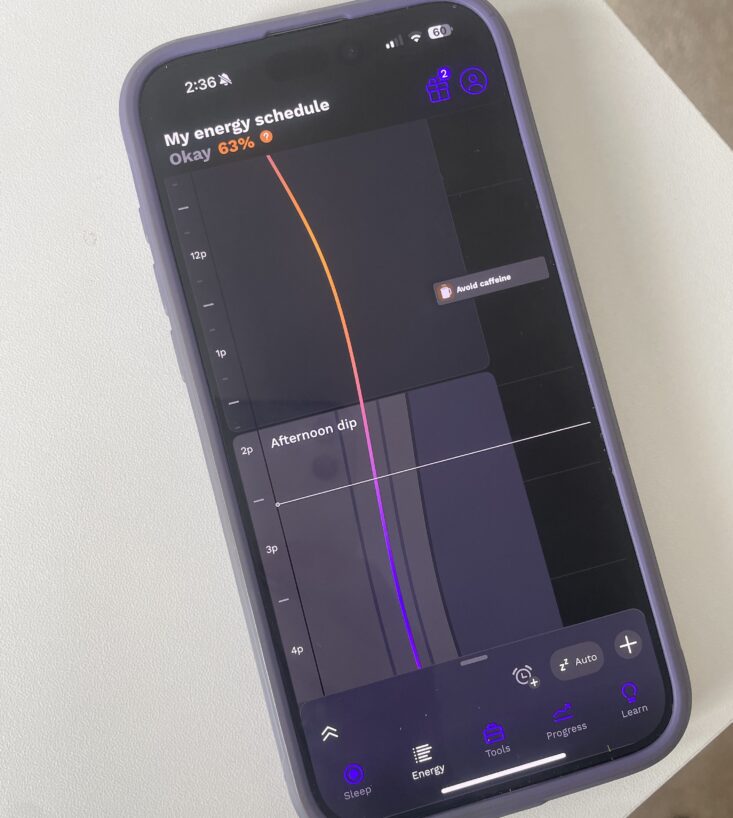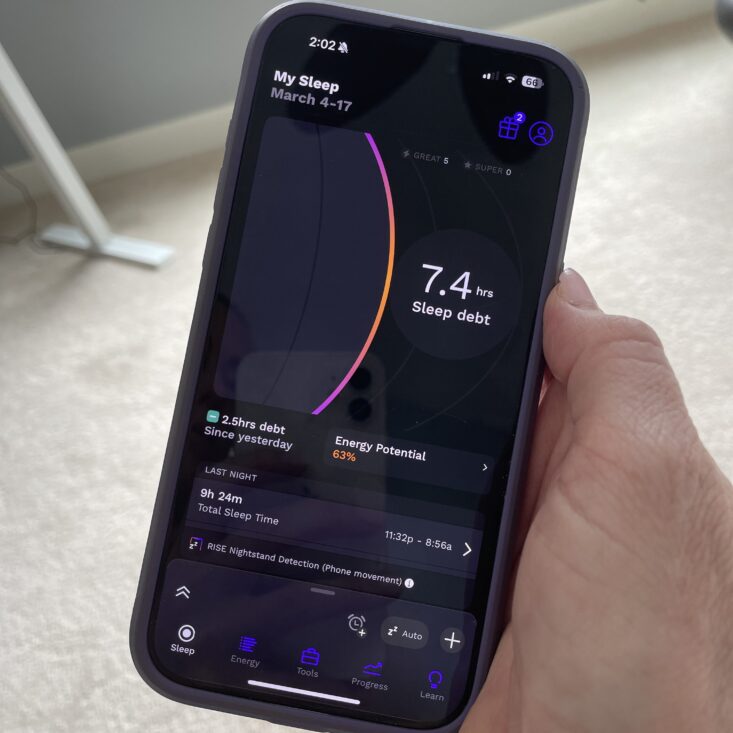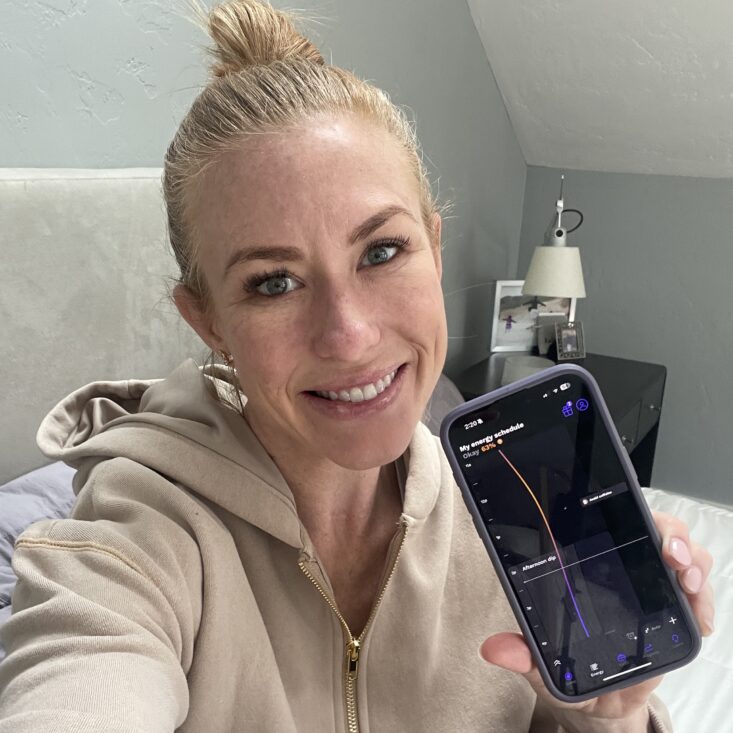I’ve always wanted to be a morning person, but no matter how much I tweak my bedtime, I still wake up groggy. I’ve tried sleep-tracking apps, melatonin, and even one of those sunrise alarm clocks, but nothing explained why I still felt exhausted.
That’s when I started looking into sleep debt and energy tracking. I tested RISE and ShutEye, two popular sleep apps with different approaches. ShutEye tracks your sleep patterns overnight, while RISE helps you manage your energy throughout the day. After using both, one actually helped me feel better, and the other just gave me more data.
Here’s how they stacked up.
If you want to feel more rested fast… RISE wins.

ShutEye gives you detailed sleep data—how long you spent in REM, deep, and light sleep—plus a nightly score. But even with all that info, I didn’t feel any better.
RISE focuses on sleep debt—and how to pay it back quickly. It shows how much rest your body’s missing, when to sleep or nap to recover faster, and syncs with your circadian rhythm to help you maximize energy.
It even gives you a timeline for when you’ll feel the difference. For me, that was just a few days. No wonder NFL players use it—it doesn’t just track sleep, it helps you bounce back from it.
If you want to plan your day around your energy levels… RISE wins.

One of the coolest things about RISE is that it predicts when I’ll naturally have energy and when I’ll hit a slump. It’s weirdly accurate. I started using it to time my workouts and deep-focus work, making everything feel so much easier.
ShutEye doesn’t have anything like this. It focuses on sleep tracking, so while it helps you understand how you slept, it doesn’t help you structure your day to feel better.
If you need sleep sounds and bedtime stories… It’s a tie.
Both apps have a solid library of sleep sounds, white noise, and guided meditations. I used them both and didn’t notice a major difference in quality or selection. If you like falling asleep to calming sounds, either app will do the trick.
If you want a smart alarm that’s in-tuned with your sleep… RISE wins.

ShutEye’s smart alarm wakes you up during your lightest sleep stage, which is nice, but I didn’t always wake up feeling refreshed. RISE takes a different approach. It factors in both my sleep debt and circadian rhythm to wake me up at a time that makes the most sense for my body. I noticed I was waking up before my alarm some days, which never happens. It just felt more in tune with what my body needed.
If you want detailed sleep reports… ShutEye wins.
RISE focuses on day-time energy management – i.e. sleep debt and energy tracking. So, if you prefer in-depth graphs and data-heavy reports about your night-time sleep, ShutEye gives you way more insights. It’s great for people who want to analyze every aspect of their sleep in detail.
If you care about pricing… RISE wins for value.

ShutEye is slightly cheaper at $59.99 per year, while RISE is around $1 per day or $0.33 per day if you subscribe quarterly. But for what RISE does, I think it’s worth the extra cost. ShutEye gave me some interesting sleep stats, whereas RISE helped me wake up feeling energized.
Final Verdict: RISE Changed More Than My Sleep Patterns
If you just want to track your sleep and see a breakdown of your sleep cycles, ShutEye is a solid option. But if you want to actually feel less tired and have a better handle on your energy throughout the day, RISE is the way to go. It didn’t just help me sleep better—it helped me live better.
Within days, I had more energy, clearer focus, and felt like I was finally getting ahead of my exhaustion. RISE gave me real results, not just another sleep score—and that’s what actually made a difference.



